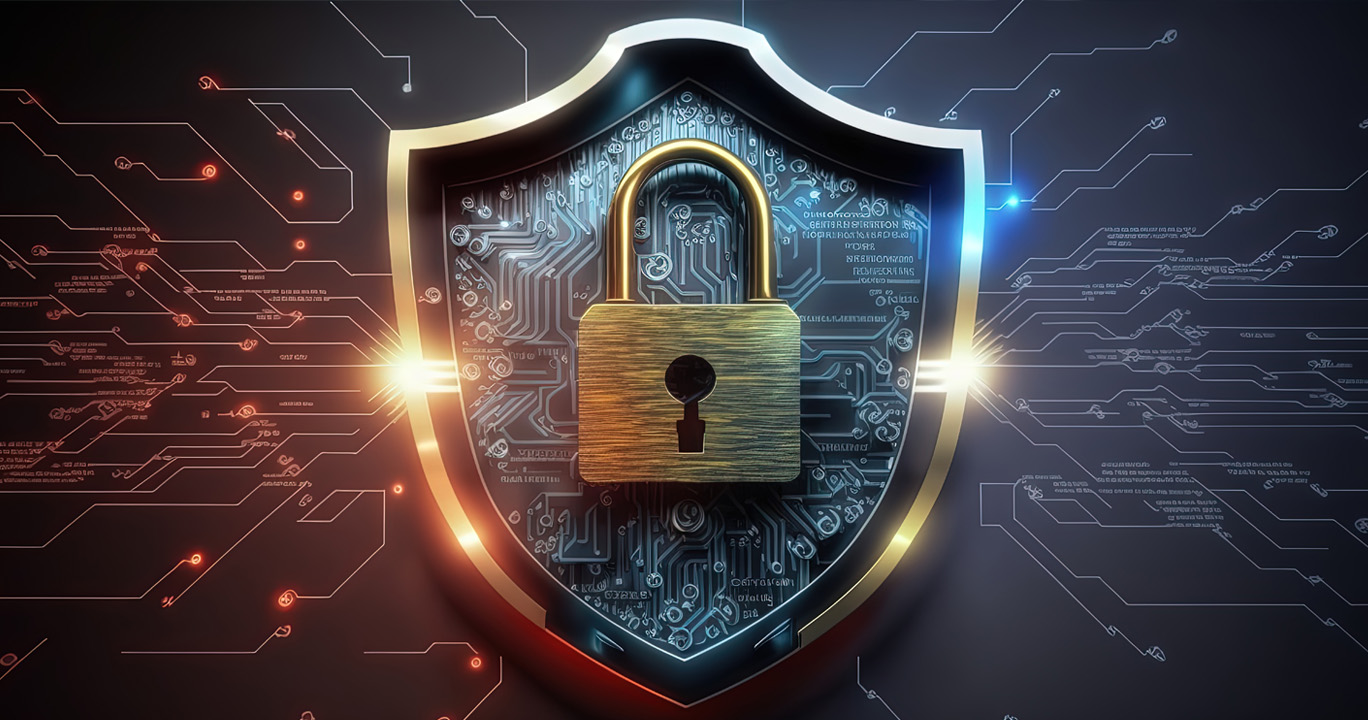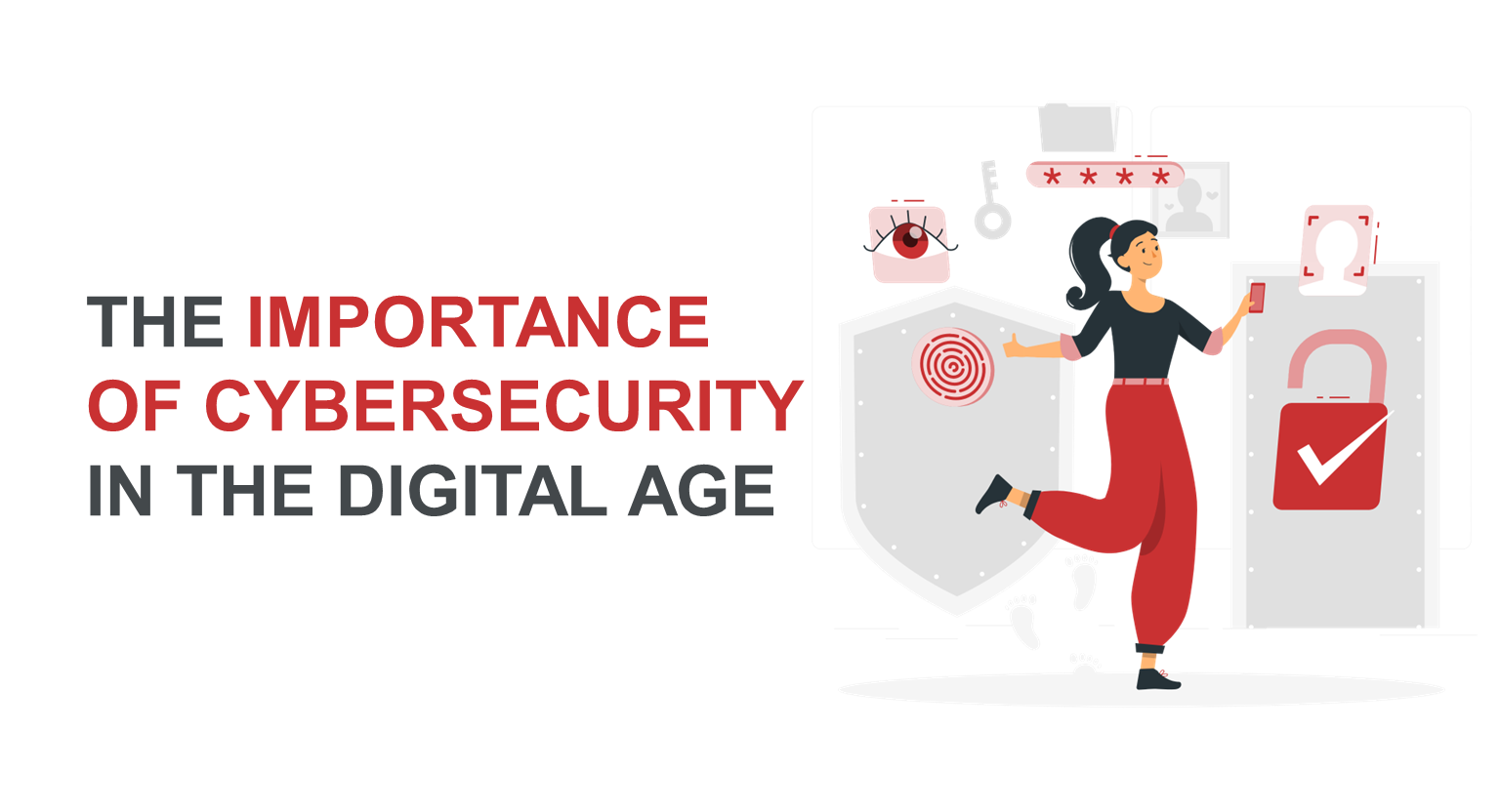The Importance of Cybersecurity in the Digital Age
Cybersecurity is vital in the digital age to protect sensitive data and ensure online safety. It helps prevent cyber threats and data breaches.
As the world becomes increasingly digitized, the importance of cybersecurity grows exponentially. Cyber threats like hacking, phishing, and malware attacks can compromise personal and business data. Effective cybersecurity measures protect against these threats, ensuring the integrity and confidentiality of information.
Businesses and individuals must invest in robust security protocols to safeguard their digital assets. With the rise of remote work and online transactions, the need for comprehensive cybersecurity has never been greater. Staying informed about the latest security practices and tools is essential for minimizing risks and maintaining a secure digital environment.
Introduction To Cybersecurity
In the digital age, cybersecurity is crucial. It protects our data, devices, and networks. Cybersecurity helps keep our information safe from hackers and threats.
Digital Age Landscape
The digital age has changed how we live. We use the internet for everything. Shopping, banking, and socializing all happen online. This makes life easier but also riskier.
Many devices connect to the internet. Smartphones, tablets, and smart homes all use Wi-Fi. This web of devices is called the Internet of Things (IoT). Each device is a target for cyberattacks.
Businesses also rely on the internet. They store data in the cloud. They use online tools to manage work. A single breach can cause huge losses. It can damage a company’s reputation.
Emerging Threats
Cyber threats evolve daily. Hackers create new ways to steal data. They use malware, phishing, and ransomware.
- Malware: Software that harms your device.
- Phishing: Tricks users into giving personal information.
- Ransomware: Locks files and demands payment to unlock.
Even kids can be targets. Games and apps may hide threats. Parents need to teach children about online safety.
Businesses also face advanced threats. Cybercriminals use sophisticated methods. They can breach even strong defenses. This includes DDoS attacks and insider threats.
| Threat | Description |
|---|---|
| Malware | Software designed to damage or disable computers. |
| Phishing | Fraudulent attempts to obtain sensitive information. |
| Ransomware | Malware that locks files and demands a ransom. |
| DDoS Attacks | Overwhelms a server with traffic, causing a crash. |
| Insider Threats | Attacks from within the organization. |
Cybersecurity is a shared responsibility. Everyone must stay informed. Protect your data. Stay safe online.
Credit: codemosaiclearning.medium.com
Types Of Cyber Threats
Cyber threats come in various forms. Each type poses unique risks. Understanding these threats helps in protecting your digital life.
Malware And Viruses
Malware is malicious software. It damages or disrupts computers. Viruses are a common type of malware. They spread by attaching to files.
Malware can steal data, spy on users, or control devices. Here are some common types of malware:
- Trojan Horses – Disguised as legitimate software.
- Ransomware – Locks files and demands payment.
- Spyware – Monitors user activity without consent.
Keeping software up-to-date and using antivirus programs can help. Always be cautious about downloads and attachments.
Phishing Attacks
Phishing attacks trick users into giving personal information. Attackers often use fake emails or websites. These attacks can lead to identity theft.
Phishing emails may look real. They might ask you to click a link or provide information. Be wary of emails asking for sensitive data.
Here are some signs of phishing emails:
- Urgent requests for information.
- Generic greetings like “Dear Customer”.
- Links to unfamiliar websites.
Always verify the sender’s email address. Do not click on suspicious links. Use multi-factor authentication for added security.
Impact On Individuals
Cybersecurity is vital for protecting individuals in the digital age. The risks extend beyond companies to individual users. People face serious threats like identity theft and financial loss.
Identity Theft
Identity theft is a severe consequence of poor cybersecurity. Hackers can steal personal information like Social Security numbers and birthdates. They use this data to impersonate the victim.
Victims of identity theft face numerous problems. They may have to prove their identity to authorities. It can take years to resolve all issues caused by identity theft.
Here are some common ways identity theft impacts individuals:
- Damage to credit score
- Unauthorized transactions
- Legal issues
Financial Loss
Financial loss is another significant impact of cybersecurity breaches. When hackers access bank accounts, they can steal money directly. This immediate loss is devastating for many people.
Some common ways people lose money include:
- Unauthorized bank withdrawals
- Fraudulent credit card charges
- Online shopping scams
| Type of Financial Loss | Description |
|---|---|
| Bank Account Breach | Hackers access and empty accounts |
| Credit Card Fraud | Unauthorized charges on credit cards |
| Online Scams | Fake websites trick users |
Protecting personal information is essential. Strong passwords and two-factor authentication help reduce risks. Be cautious about sharing sensitive data online.
Impact On Businesses
In the digital age, cybersecurity is crucial for businesses. The rise of cyber threats has made security essential. Neglecting cybersecurity can lead to severe consequences. Let’s explore two major impacts: data breaches and reputation damage.
Data Breaches
Data breaches can cost businesses a lot of money. They expose sensitive information. This can include customer data, financial records, and intellectual property.
A breach can lead to legal penalties. Businesses may face fines or lawsuits. Loss of trust from customers is another major issue. They may choose competitors who offer better security.
| Impact | Description |
|---|---|
| Financial Loss | Costs related to breach recovery and legal penalties. |
| Data Exposure | Leak of sensitive customer or business information. |
| Loss of Trust | Customers may leave for more secure competitors. |
Reputation Damage
Reputation damage can be devastating. Once a company’s reputation is harmed, recovery is tough. Negative press and social media can spread quickly.
Trust is hard to rebuild. Customers expect their data to be safe. A breach can result in long-term loss of business. Brand image suffers, impacting future revenue.
- Negative press and social media backlash.
- Loss of customer confidence and loyalty.
- Long-term impact on brand image and revenue.
Role Of Government
In the digital age, cybersecurity holds immense importance. One key player in this field is the government. The government plays a crucial role in ensuring the safety of digital assets and data. This section explores the various ways in which governments contribute to cybersecurity.
Regulations And Policies
Governments create regulations and policies to protect digital information. They set standards for data protection and network security.
Here are some key regulations:
- GDPR: Protects personal data in the EU.
- HIPAA: Secures health information in the USA.
- CCPA: Ensures data privacy for California residents.
These policies help to create a safer digital environment. They enforce strict rules on companies and organizations. Failing to comply can lead to severe penalties.
Public Awareness Campaigns
Governments also run public awareness campaigns. These campaigns educate citizens about cybersecurity threats. They teach people how to protect their personal information online.
Key elements of these campaigns include:
- Educational Workshops
- Online Resources
- Social Media Outreach
Educational workshops provide hands-on training. Online resources offer guides and tips. Social media outreach spreads important information quickly.
These efforts help build a more informed and secure society. People learn to recognize phishing scams and secure their passwords.
In conclusion, the government plays a pivotal role in cybersecurity. Through regulations and public awareness, they help protect our digital world.

Credit: startnearshoring.com
Best Practices For Protection
In today’s digital world, protecting your information is crucial. Everyone should follow best practices to keep their data safe. These practices help defend against cyber threats. Below are some key methods to enhance your cybersecurity.
Strong Passwords
Using strong passwords is essential for online security. A strong password should have at least 12 characters. It should include a mix of letters, numbers, and symbols. Avoid using easily guessable information, like birthdays or common words.
- Use a combination of upper and lower case letters.
- Include numbers and special characters.
- Avoid using personal information.
- Use a password manager to keep track of passwords.
Regular Software Updates
Keeping your software updated is another crucial practice. Software updates often include security patches. These patches fix vulnerabilities that hackers could exploit.
Here are some tips for ensuring regular updates:
- Enable automatic updates on all devices.
- Regularly check for updates for all installed software.
- Update your operating system and applications as soon as updates are available.
By following these best practices, you can significantly enhance your cybersecurity. Strong passwords and regular updates are simple yet effective methods. They can protect your valuable information in the digital age.
Future Of Cybersecurity
Cybersecurity is evolving quickly. As threats grow, so do the defenses. The future of cybersecurity promises exciting advancements. These advancements will shape how we protect our digital lives.
Ai And Machine Learning
Artificial Intelligence (AI) and Machine Learning (ML) are game-changers. They help detect threats faster than humans. AI can analyze patterns and find anomalies. ML learns from past attacks to predict new ones.
Using AI and ML makes systems smarter. They can adapt to new threats automatically. This reduces the response time. It also increases the accuracy of threat detection.
Here are key benefits of AI and ML in cybersecurity:
- Faster threat detection
- Improved accuracy
- Automatic threat response
- Reduced human error
Quantum Computing
Quantum Computing is the next frontier. It promises immense power. This power can break current encryption methods. But it also offers new ways to secure data.
Quantum computers use qubits. Qubits can process complex calculations quickly. This can help create stronger encryption algorithms. These algorithms will be nearly impossible to break.
Key aspects of quantum computing in cybersecurity:
| Feature | Benefit |
|---|---|
| Qubits | Faster calculations |
| New encryption | Stronger security |
| Advanced algorithms | Better data protection |
The future of cybersecurity looks bright. AI, ML, and quantum computing will lead the way. These technologies will keep our digital world safe.

Credit: www.vtechsolution.com
Conclusion
Prioritizing cybersecurity protects sensitive data and ensures online safety. Strong measures help guard against cyber threats. Stay vigilant and informed. Implement robust security protocols. Safeguard your digital presence and enjoy a secure online experience. Embrace cybersecurity to protect your digital life in this ever-evolving digital age.






